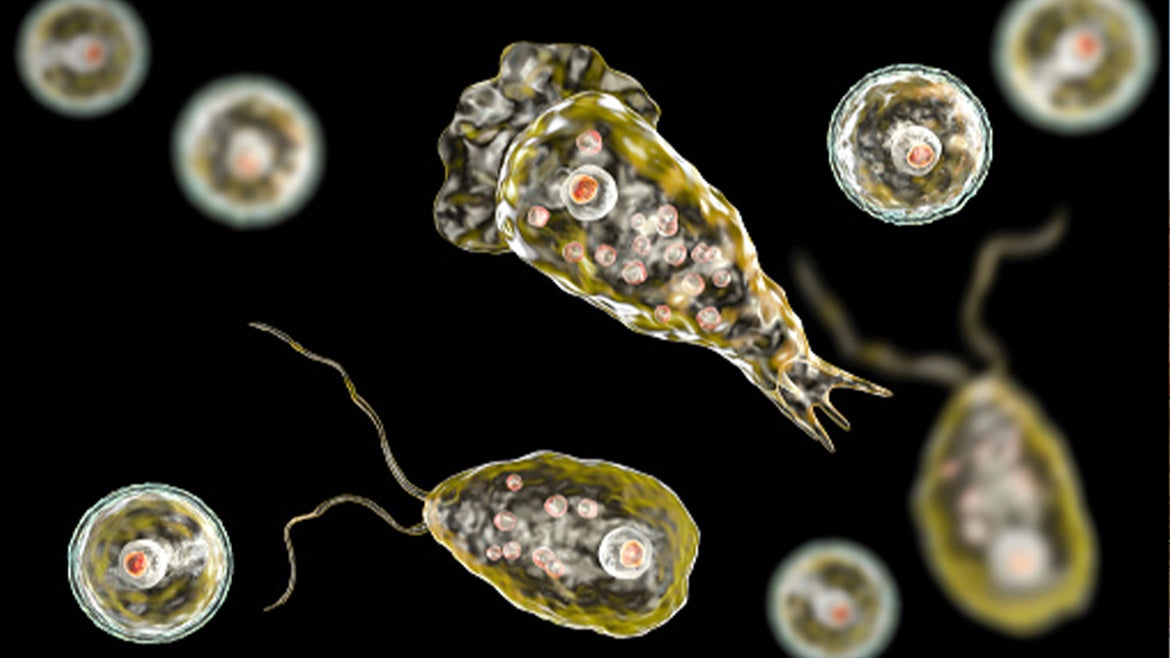The amoeba Naegleria fowleri can cause a rare life-threatening infection of the brain called primary amebic meningoencephalitis. People are infected when water containing the amoeba enters the body through the nose.
A resident of Missouri has been hospitalized in intensive care as they battle a rare brain-eating amoeba that they likely were infected with while swimming in a lake in Iowa, officials said.
The beach at Lake of Three Fires in Taylor County was closed temporarily starting on Friday as a precautionary response to a confirmed infection of Naegleria fowleri, the Iowa Department of Health and Human Services said in a statement.
"Naegleria fowleri is a microscopic single-celled free-living amoeba that can cause a rare life-threatening infection of the brain called primary amebic meningoencephalitis," or PAM, the health department wrote, noting that they are testing to determine if the amoeba is present in the lake in which the Missouri resident swam.
"Testing ... is being conducted in conjunction with the CDC and could take several days to complete," the health department wrote.
Naegleria fowleri is commonly found in warm freshwater, such as lakes, rivers and ponds, and people are infected when water containing the amoeba enters the body through the nose. It then travels to the brain, where it destroys the brain tissue. "This infection cannot be spread from one person to another, and it cannot be contracted by swallowing contaminated water," the health department wrote.
PAM is extremely rare. There have been 154 known cases in the U.S. since 1962, and authorities said no additional suspected cases of PAM are currently being investigated in either Missouri or Iowa, and this is believed to be the first case discovered in Iowa. Though rare, the condition is extremely dangerous. Only four people out of the 154 known infected individuals in the U.S. from 1962 to 2021 survived.
"It's the worst parasite in the world that we know of because it causes such devastating pathology," Christopher Rice, a research scientist in the Center for Drug Discovery at the University of Georgia, told CBS. A sample of cerebral spinal fluid is needed to confirm a person has been infected with the parasite, he said, noting it is a difficult condition to diagnose.
"While this infection is extremely rare in the United States, people who experience the following symptoms after swimming in any warm body of water should contact their health care provider immediately," the health department wrote, listing severe headache, fever, nausea, vomiting and stiff neck as symptoms of which to be aware.
Symptoms can then progress to include seizures, altered mental status, hallucinations and coma, according to the Centers for Disease Control and Prevention. Symptoms appear one to nine days after being infected, the CDC says. People typically die one to 18 days after symptoms begin.
"Overall, the outlook for people who get this disease is poor, although early diagnosis and new treatments might increase the chances for survival," the CDC says.











